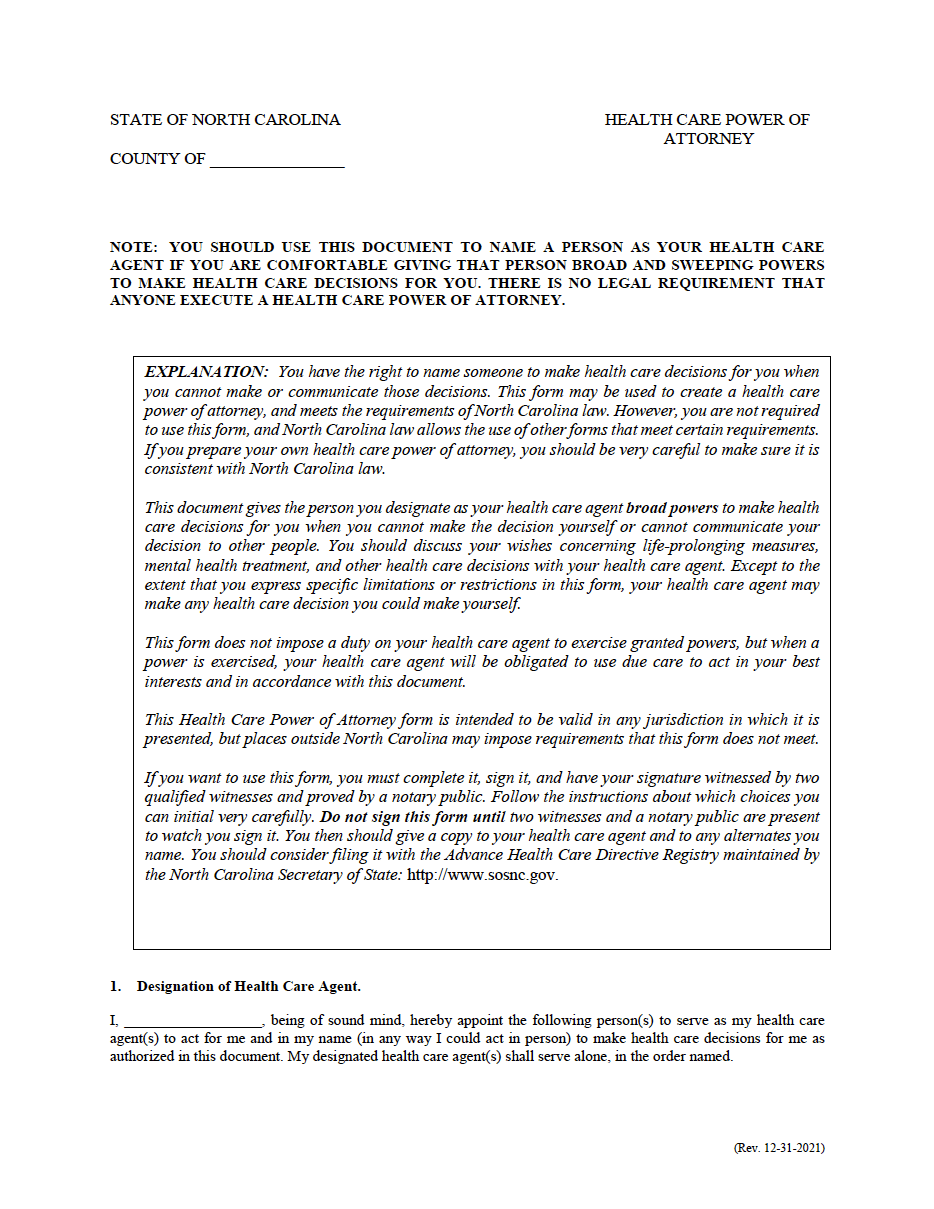North Carolina Health Care Power of Attorney Form
A North Carolina health care power of attorney is a form created by a person (the principal) to give another person (the agent) permission to represent them in a medical setting. It allows the agent to convey the principal’s health-related wishes and/or make decisions for them. The agent only has this responsibility if the designated physician (listed in this form) decides that the principal cannot communicate their preferences. Traumatic brain or spinal injures, cancer, dementia, and other neural-related illnesses can result in this state of mind, also known as incapacitation.
This form gives the principal the ability to restrict or extend the agent’s power as much as they would like. For example, they may or may not include instructions for artificial nutrition and hydration, mental health treatment, body disposition, and/or organ donation. If the principal has a specific cultural, religious, or spiritual belief concerning their health, they can also state these details in the form. The agent must follow these requests and always act in the principal’s best interest. Otherwise, the principal (or their family member) can sue the agent, especially if it results in injury, illness, or death.
Unless the principal includes specific restrictions in the form, the agent can make any medical-related decision on their behalf. They can also access and review a principal’s medical history with physicians, nurses, or other medical professionals, although they can only share these records if it benefits the principal. The agent cannot post or discuss this information publically (online or in-person) or with non-authorized personnel.
The agent can hire or fire medical staff, authorize mental health care, or approve medical treatment. Additionally, they can select the hospital that a principal receives treatment or the facility where they live. However, the agent must have an understanding of the principal’s financial situation when making these decisions. If the principal has created a general power of attorney with a different agent, both parties must communicate to carry out the medical wishes as desired. A judge must appoint an agent to make medical or financial decisions for the principal if a medical or general power of attorney does not already exist.
Signing requirements (§ 32A-16(3) & § 90-321(c)(3) & (4)): Must be signed by the principal, observed by two (2) qualified witnesses, and acknowledged before a Notary Public.
